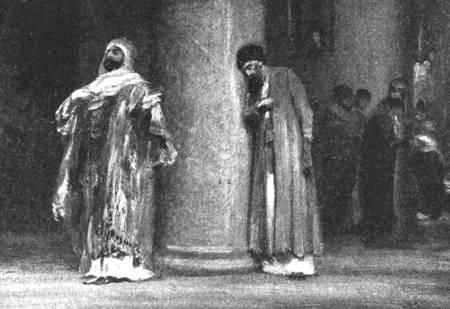
It’s not getting to the land of the dead that’s the problem. It’s getting back.
– Capt. Hector Barbossa, Pirates of the Caribbean at World’s End
It is possible to speak in great detail about the origins and problems of the “false-self” (ego). Once the characteristics of the ego, it’s narrative, defenses, aggression, and unrelenting dominance of the mind are identified, it is not only easy to see, it is difficult not to see. It’s not finding the false-self that’s the problem: it’s finding the heart. Greater still the problem of learning to dwell there. We are told in Scripture that we are dead, “and our life is hid with Christ in God” (Col. 3:3). The journey to the heart is a journey to God. It is not a strategy for self-improvement: it is the journey of salvation.
Salvation, in the fullness of Biblical teaching, is the whole of the Christian life. All that we do and all that God does for us and in us is salvation. It is our healing, justification, sanctification, cleansing, transformation, and deification. The salvation of humanity begins even before creation when the “Lamb was slain” (Rev. 13:8) and it ends when God is “everything in everyone” (1 Cor. 15:28).
Salvation is the long journey home.
Within the inner life, salvation is experienced as deliverance from the domination of the false-self (the ego or the old Adam) and our daily growth in the true self, centered in the heart. The heart is the place of transformation where Christ is seated at the right hand of God.
Though the journey is long and finding the heart is “the problem,” we are not left without guidance. I offer some thoughts here:
Silence. The ego is inherently noisy. To be quiet (the noise of thoughts having ceased) is the beginning of our awareness of the heart.
Thanksgiving. True thanksgiving is the great enemy of the false ego. To give thanks to God everywhere, always and for all things is outside the capabilities of the ego. It opens the heart and quietens the ego. Almost nothing is as salutary in the work of salvation.
Good thoughts. The Elder Thaddeus of Vitovnica teaches extensively about the role our thoughts play in our lives. Good thoughts, in agreement with the Scriptures and the teaching of the fathers, full of kindness and forgiveness, are hugely important in the purification of the soul.
Watchfulness. This is a translation of the term nepsis (also translated “sobriety”). It describes our careful awareness of the rise within us of the false-self. Thoughts of anger, greed, judgment, envy, etc. are noted and dismissed. Sometimes they are easily dismissed. At other times we will find ourselves engaging in spiritual warfare. The battle turns in our favor when we realize that these thoughts are not “our” thoughts, but the lies and fantasies of a delusional ego. If everything that the ego imagines were to come to pass, we would not be happy and nothing would improve. There is no substance, nor true existence in such imaginings.
Breathe. The admonition to breathe will sound like yoga or new-age nonsense to some. St. Gregory Palamas goes to great lengths to talk about the importance of the body (and breathing in particular) in finding the place of the heart and pure prayer. We are psychosomatic unities – creatures who are not bodiless. How we eat; how we sleep; how we breathe; how we walk; all that we do with our body plays a role in our life before God. We are called to pray like human beings and not disembodied spirits. We are not the bodiless powers of heaven, but the embodied images of God. We are taught to breathe slowly (if you are anxious and fearful you cannot breathe in this manner). We are taught to relax our muscles. Trust in God. His goodness has a demonstrably physical component.
+++
The discovery of the place of the heart is not the end of the journey but a beginning. I cannot write of the end of the journey, for none of us has yet glimpsed that blessedness. It is for us to begin. To find the place of silence where we do not judge or compare, where we do not justify or defend, where we do not fear or desire, dominate or label is to find the heart. Such a place is fleeting at first. But with silence, thanksgiving, good thoughts and watchfulness, we can slowly recognize a place (and learn to remain there for longer periods) where true prayer is possible. It is this place that is the object of our life of prayer, fasting, almsgiving and spiritual effort. The ego is an unruly fantasy and will never be improved. The work of salvation witnesses the slow abolition of the ego as it is replaced with the true life in Christ. It is a long journey – but it is the journey to our true home.













